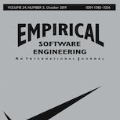A growing number of empirical software engineering researchers suggest that a complementary focus on theory is required if the discipline is to mature. A first step in theory-building involves the establishment of suitable theoretical constructs. For researchers studying software projects, the lack of a theoretical construct for context is problematic for both experimentation and effort estimation. For experiments, insufficiently understood contextual factors confound results, and for estimation, unstated contextual factors affect estimation reliability. We have earlier proposed a framework that we suggest may be suitable as a construct for context i.e. represents a minimal, spanning set for the space of software contexts. The framework has six dimensions, described as Who, Where, What, When, How and Why. In this paper, we report the outcomes of a pilot study to test its suitability by categorising contextual factors from the software engineering literature into the framework. We found that one of the dimensions, Why, does not represent context, but rather is associated with objectives. We also identified some factors that do not clearly fit into the framework and require further investigation. Our contributions are the pursuing of a theoretical approach to understanding software context, the initial establishment and evaluation of a construct for context and the exposure of a lack of clarity of meaning in many 'contexts' currently applied as factors for estimating project outcomes.
翻译:越来越多的实证软件工程研究人员认为,如果学科成熟,就需要对理论进行补充性的重点。理论建设的第一步涉及建立适当的理论结构。对于研究软件项目的研究人员来说,缺乏理论背景结构对于实验和努力估计都是有问题的。对于实验来说,由于对背景因素理解不够,结果不尽如人意,而且对于估计来说,未经说明的背景因素影响估计的可靠性。我们早些时候提出了一个框架,我们建议,这个框架可能适合作为背景结构的构筑,即:代表一个最小的,为软件空间所设置的。框架有六个层面,被描述为“谁、什么、什么、什么、何时、如何和为什么”。在本文件中,我们报告一项试点研究的结果,通过将软件工程文献中的背景因素分类到框架来测试其是否合适。我们发现,其中一个层面,为什么,并不代表背景,而是与目标相关联。我们还确定了一些显然不适合框架的因素,需要进一步调查。我们的贡献是,在理解软件背景背景、最初设置和评估背景因素的理论方法,以及目前对项目结果缺乏清晰性的理解。



